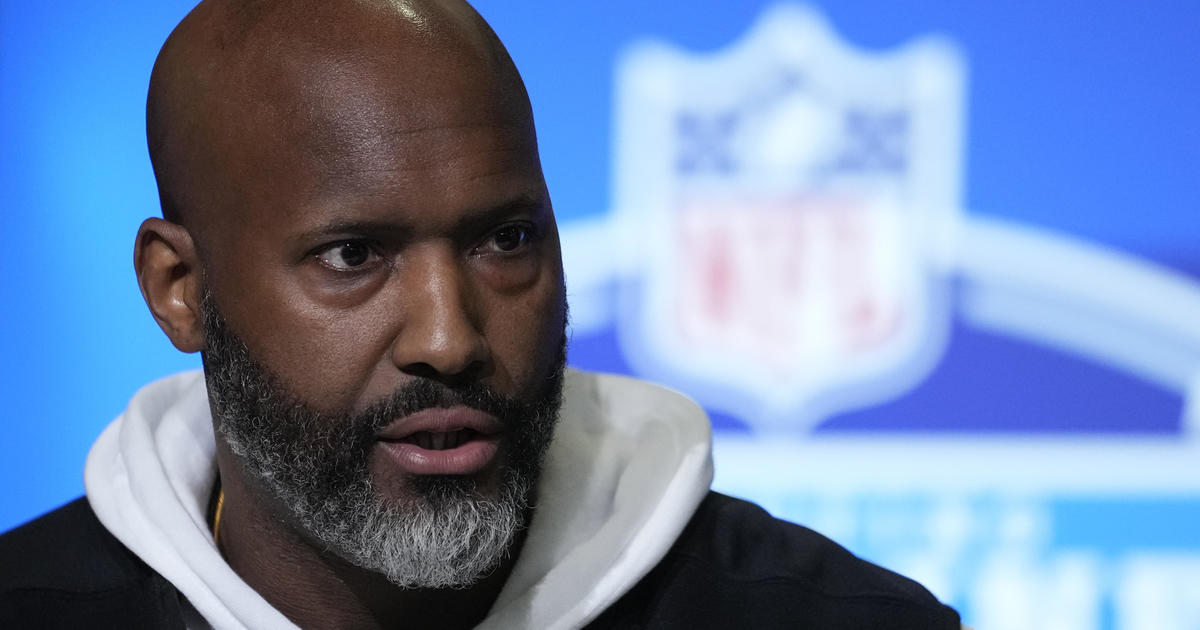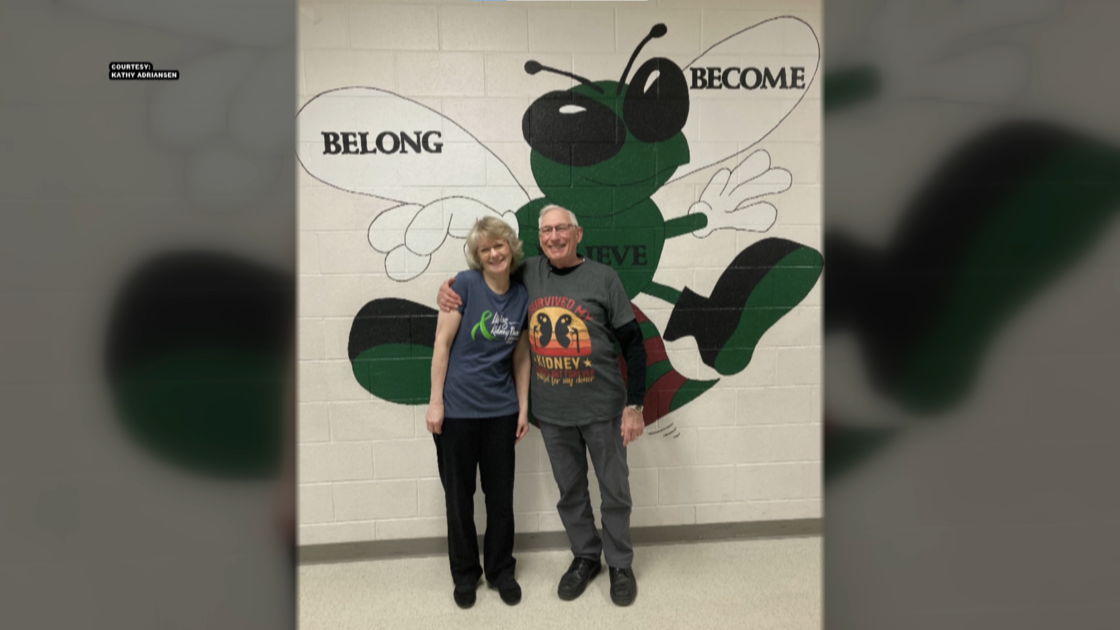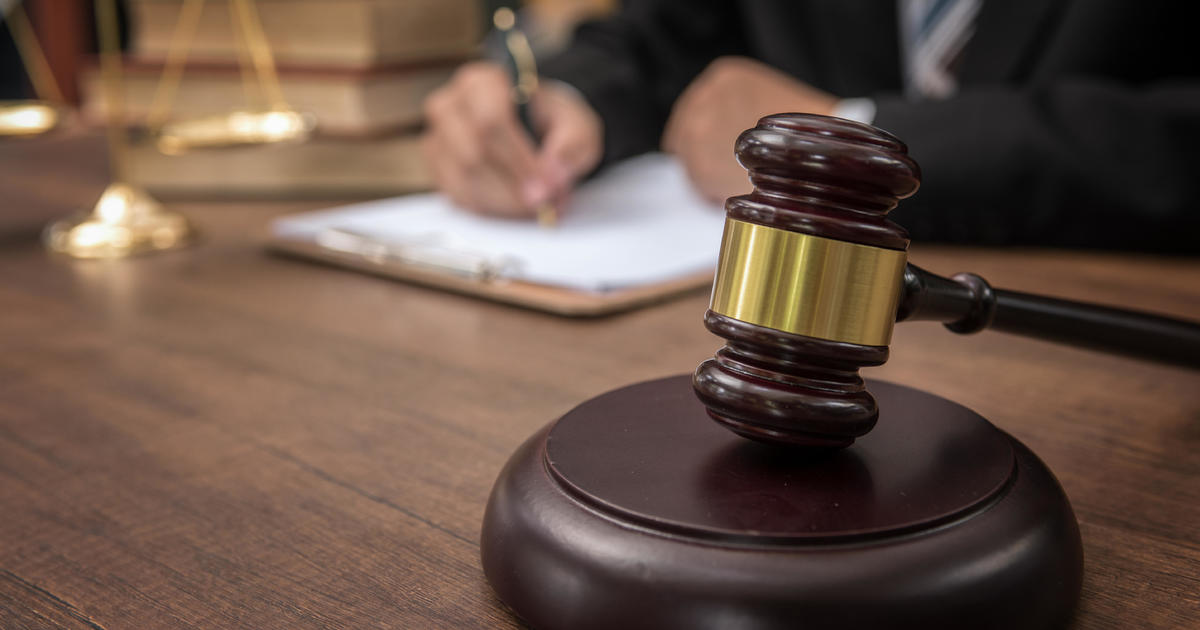More People Are Getting Covid-19 Vaccine Boosters Than Getting Their First Shots, CDC Data Shows
(CNN) - Mark Warschauer, a professor of education at the University of California, Irvine, was "tremendously excited" about the authorization of Covid-19 vaccines, and happy when he became eligible to get his first doses.
And he was at the front of the line to get a booster, too.
 SAN RAFAEL, CALIFORNIA - OCTOBER 01: Safeway pharmacist Shahrzad Khoobyari (R) administers a Pfizer COVID-19 booster vaccination into the arm of Chen Knifsend at a vaccination booster shot clinic on October 01, 2021 in San Rafael, California. Marin County opened its first COVID-19 booster shot clinic inside a former Victoria's Secret store at Northgate Mall. The clinic is giving priority to residents over 75 years old but is open to all ages that are eligible to receive the Pfizer booster. (Photo by Justin Sullivan/Getty Images)
SAN RAFAEL, CALIFORNIA - OCTOBER 01: Safeway pharmacist Shahrzad Khoobyari (R) administers a Pfizer COVID-19 booster vaccination into the arm of Chen Knifsend at a vaccination booster shot clinic on October 01, 2021 in San Rafael, California. Marin County opened its first COVID-19 booster shot clinic inside a former Victoria's Secret store at Northgate Mall. The clinic is giving priority to residents over 75 years old but is open to all ages that are eligible to receive the Pfizer booster. (Photo by Justin Sullivan/Getty Images)
"We were very concerned about Covid," he told CNN. "I'm not elderly, but at the age of 67 I knew there was a substantial risk of hospitalization and even death from Covid. So I got my vaccine at the earliest possible date."
Warschauer is leading a trend.
According to the most recent data from the US Centers for Disease Control and Prevention, more people are receiving a booster dose of a Covid-19 vaccine each day than are getting their first shot or are becoming fully vaccinated each day.
CDC data now shows more than six million fully vaccinated Americans have received a booster dose of a Covid-19 vaccine. An average of 390,444 people are getting a booster shot each day, while only 288,105 people are starting their vaccination series each day and 276,539 people are becoming fully vaccinated each day.
Current recommendations from the CDC are that people over 65, people who have a health condition putting them at greater risk of severe disease if they do get a breakthrough infection or people who face a greater risk of contracting Covid-19 while at work or in their living circumstances can receive a booster dose. A booster dose is currently only authorized for those who received a full series of Pfizer's Covid-19 vaccination.
Plus, certain people who are immune-compromised are authorized for a third dose, although it's not technically considered a booster because it's likely they did not fully respond to the first two doses.
While Biden administration officials have stressed that booster doses are important in addition to increasing the number of Americans vaccinated with the initial series of shots, booster dose administration rates have outpaced the number of people starting vaccination since October 1.
"Vaccinating the unvaccinated remains the top priority, including through vaccination requirements," White House Covid-19 Response Coordinator Jeff Zients said Wednesday in a White House Covid-19 Response Team briefing.
Getting boosters to protect themselves, others
According to CDC data, more than 64% of booster doses administered so far have been given to people 65 or older. Nearly 9% of all fully vaccinated people 65 or older have received a booster dose.
As someone who says he tries to follow the science carefully, Warschauer said he felt the same about boosters.
"I was naturally also looking forward to the possibility of getting my booster," he said, adding that he got it as soon as he was eligible.
Getting his booster shot was about more than protecting himself, he said. It was about protecting everyone else around him.
"It just seems like part of my responsibilities being a good citizen," he said. "And also, you know, protecting my own health."
Meeting booster demand
Zients said the Biden administration's work around booster doses is "paying off."
"We estimate that 4 million Americans have now rolled up their sleeves and gotten a booster shot, including 2 million in the first week and another 2 million in just the last five days," he said.
"Our booster program is not only up and running, but it's also accelerating and we're building on our strong start to get millions of eligible Americans their booster shot."
The administration of booster doses may pose a challenge to some vaccine clinics as demand increases.
"On the ground, it's been manageable, and we haven't been hearing much in terms of trouble with the Pfizer boosters. But I think the main concern about adding more boosters is capacity," Lori Tremmel Freeman, chief executive officer of the National Association of County and City Health Officials, told CNN on Wednesday.
"Mass vaccination clinics will likely be considered when and where there's a need."
As an employee of the University of Michigan who runs Covid-19 testing sites, Alicia Kalsi, 26, was able to get her booster shot at an employee clinic early on in the booster rollout.
Kalsi told CNN that under CDC guidelines, her job meant that she was in the "you may get" the booster group, not the "you should" group. She decided to get her booster shot for both occupational and personal reasons.
"I knew from an occupational standpoint it would be beneficial for me to do it," she said.
"And as for from a personal standpoint, I'm a public health practitioner and it's very exciting to see this inoculation rollout. And like I mentioned with my first dose, I'm really excited to be able to be involved with something so historic. It's incredibly exciting for me. It's a privilege and an honor to be able to protect myself and my community by doing something so simple."
The last time she checked, she said, the next available appointment at the employee clinic was at the end of October.
"It's a decently high demand," she said. "Funny enough, when I was talking to the nurse who was administering my vaccine, she was saying to me it's nice that we have people who are so excited to come in again."
The-CNN-Wire™ & © 2021 Cable News Network, Inc., a WarnerMedia Company. All rights reserved.



